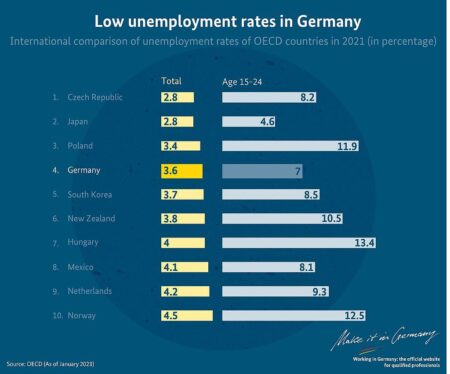The Trump-era tariffs have disrupted Germany’s economic strategy towards China, particularly under the leadership of Friedrich Merz. As trade tensions escalate, Germany faces challenging decisions to adapt its export policies and maintain competitiveness.
Browsing: German economy
Germany’s unemployment rate rose to 6.3% in March, marking a notable increase as economic challenges persist. Analysts point to factors such as shifts in the labor market and ongoing economic pressures as contributing elements to this uptick.
Germany’s auto giant Audi has announced plans to cut 7,500 jobs from its workforce amid ongoing industry challenges. This decision highlights the company’s strategy to adapt to changing market dynamics and a shift towards electric vehicles.
In a dramatic late-night meeting, a critical 3 a.m. showdown solidified Merz‚Äôs innovative strategy to revitalize Germany’s economy. Key stakeholders rallied behind the plan, marking a pivotal moment for the nation’s financial future amid escalating challenges.
The Bundesbank has acknowledged that increased German spending is justified in the current economic climate, yet it cautions that such measures alone will not resolve deeper structural issues. Experts urge a balanced approach to ensure sustainable growth.
Amidst economic uncertainties, Germany’s Finance Minister Christian Merz has initiated a fiscal awakening aimed at revitalizing the nation’s economy. His strategic policies may steer Germany back on track, fostering growth and stability in the Eurozone.





